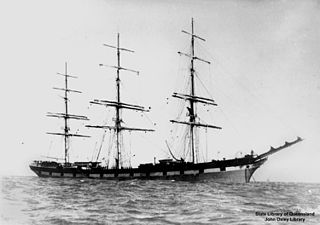
Tracing is a legal process, not a remedy, by which a claimant demonstrates what has happened to his/her property, identifies its proceeds and those persons who have handled or received them, and asks the court to award a proprietary remedy in respect of the property, or an asset substituted for the original property or its proceeds. Tracing allows transmission of legal claims from the original assets to either the proceeds of sale of the assets or new substituted assets.
Devaynes v Noble (1816) 35 ER 781, best known for the claim contained in Clayton's case, created a rule, or more precisely common law presumption, in relation to the distribution of money from a bank account. The rule is based upon the deceptively simple notion of first-in, first-out to determine the effect of payments from an account, and normally applies in English Law in the absence of evidence of any other intention. Payments are presumed to be appropriated to debts in the order in which the debts are incurred.

English trust law concerns the protection of assets, usually when they are held by one party for another's benefit. Trusts were a creation of the English law of property and obligations, and share a subsequent history with countries across the Commonwealth and the United States. Trusts developed when claimants in property disputes were dissatisfied with the common law courts and petitioned the King for a just and equitable result. On the King's behalf, the Lord Chancellor developed a parallel justice system in the Court of Chancery, commonly referred as equity. Historically, trusts have mostly been used where people have left money in a will, or created family settlements, charities, or some types of business venture. After the Judicature Act 1873, England's courts of equity and common law were merged, and equitable principles took precedence. Today, trusts play an important role in financial investment, especially in unit trusts and in pension trusts. Although people are generally free to set the terms of trusts in any way they like, there is a growing body of legislation to protect beneficiaries or regulate the trust relationship, including the Trustee Act 1925, Trustee Investments Act 1961, Recognition of Trusts Act 1987, Financial Services and Markets Act 2000, Trustee Act 2000, Pensions Act 1995, Pensions Act 2004 and Charities Act 2011.

United Kingdom insolvency law regulates companies in the United Kingdom which are unable to repay their debts. While UK bankruptcy law concerns the rules for natural persons, the term insolvency is generally used for companies formed under the Companies Act 2006. "Insolvency" means being unable to pay debts. Since the Cork Report of 1982, the modern policy of UK insolvency law has been to attempt to rescue a company that is in difficulty, to minimise losses and fairly distribute the burdens between the community, employees, creditors and other stakeholders that result from enterprise failure. If a company cannot be saved it is "liquidated", so that the assets are sold off to repay creditors according to their priority. The main sources of law include the Insolvency Act 1986, the Insolvency Rules 1986, the Company Directors Disqualification Act 1986, the Employment Rights Act 1996 Part XII, the Insolvency Regulation (EC) 1346/2000 and case law. Numerous other Acts, statutory instruments and cases relating to labour, banking, property and conflicts of laws also shape the subject.

Learoyd v Whiteley[1887] UKHL 1 is an English trusts law case, concerning the duty of care owed by a trustee when exercising the power of investment.

Re Sigma Finance Corporation[2009] UKSC 2 is an English contract law case and the first substantive decision in the Supreme Court of the United Kingdom concerning principles of interpretation. Lord Walker said although he "was one of those who gave permission for a further appeal I find, on closer consideration, that the case involves no issue of general public importance."
Dishonest assistance, or knowing assistance, is a type of third party liability under English trust law. It is usually seen as one of two liabilities established in Barnes v Addy, the other one being knowing receipt. To be liable for dishonest assistance, there must be a breach of trust or fiduciary duty by someone other than the defendant, the defendant must have helped that person in the breach, and the defendant must have a dishonest state of mind. The liability itself is well established, but the mental element of dishonesty is subject to considerable controversy which sprang from the House of Lords case Twinsectra Ltd v Yardley.
Constructive trusts in English law are a form of trust created by the English law courts primarily where the defendant has dealt with property in an "unconscionable manner"—but also in other circumstances. The property is held in "constructive trust" for the harmed party, obliging the defendant to look after it. The main factors that lead to a constructive trust are unconscionable dealings with property, profits from unlawful acts, and unauthorised profits by a fiduciary. Where the owner of a property deals with it in a way that denies or impedes the rights of some other person over that property, the courts may order that owner to hold it in constructive trust. Where someone profits from unlawful acts, such as murder, fraud, or bribery, these profits may also be held in constructive trust. The most common of these is bribery, which requires that the person be in a fiduciary office. Certain offices, such as those of trustee and company director, are always fiduciary offices. Courts may recognise others where the circumstances demand it. Where someone in a fiduciary office makes profits from their duties without the authorisation of that office's beneficiaries, a constructive trust may be imposed on those profits; there is a defence where the beneficiaries have authorised such profits. The justification here is that a person in such an office must avoid conflicts of interest, and be held to account should he fail to do so.
Tracing in English law is a procedure to identify property that has been taken from the claimant involuntarily. It is not in itself a way to recover the property, but rather to identify it so that the courts can decide what remedy to apply. The procedure is used in several situations, broadly demarcated by whether the property has been transferred because of theft, breach of trust, or mistake.

The Attorney General for Hong Kong v Reid (UKPC)[1993] UKPC 2 was a New Zealand-originated trust law case heard and decided by the Judicial Committee of the Privy Council, where it was held that bribe money accepted by a person in a position of trust, can be traced into any property bought and is held on constructive trust for the beneficiary.

Bishopsgate Investment Management Ltd v Homan [1994] EWCA Civ 33 is an English trusts law case about whether a beneficiary whose fiduciary breaches trust, may trace assets through an overdrawn account to its destination.

Sinclair Investments (UK) Ltd v Versailles Trade Finance Ltd[2011] EWCA Civ 347 is an English trusts law case, concerning constructive trusts. Sinclair was partially overruled in July 2014 by the UK Supreme Court in FHR European Ventures LLP v Cedar Capital Partners LLC.

De Mattos v Gibson (1859) is an English case, concerning the taking/grant of security for a loan over property where the lender knows of a prior binding commitment. The court held, on the facts, it would be only fair to postpone the power of sale asserting this as a general principle where facts are closely similar.

Sinclair v Brougham [1914] AC 398 is an English trusts law case, concerning the right of depositors to recover sums which were deposited to a building society under contracts of deposit which were beyond the powers of the building society.
James Roscoe (Bolton) Ltd v Winder [1915] 1 Ch 62 is an English trusts law case, concerning asset tracing.

Belmont Park Investments PTY Ltd v BNY Corporate Trustee Services Ltd[2011] UKSC 38, [2012] 1 All ER 505, [2012] 1 AC 383 is a UK insolvency law case, concerning the general principle that parties cannot contract out of the insolvency legislation. The principle has two key aspects, of which the Supreme Court of the United Kingdom ruled that only the first was relevant on the facts of the case:
- The anti-deprivation rule, which is aimed at attempts to withdraw an asset on bankruptcy or liquidation or administration, thereby reducing the value of the insolvent estate to the detriment of creditors.
- The pari passu rule, which reflects the principle that statutory provisions for pro rata distribution may not be excluded by a contract which gives one creditor more than its proper share.

FHR European Ventures LLP v Cedar Capital Partners LLC[2014] UKSC 45 is a landmark decision of the United Kingdom Supreme Court which holds that a bribe or secret commission accepted by an agent is held on trust for his principal. In so ruling, the Court partially overruled Sinclair Investments (UK) Ltd v Versailles Trade Finance Ltd in favour of The Attorney General for Hong Kong v Reid (UKPC), a ruling from the Judicial Committee of the Privy Council on appeal from New Zealand.

Re Lehman Brothers International (Europe) [2012] UKSC 6 is an English trusts law and UK insolvency law case, concerning the certainty of subject matter to create a trust.
The anti-deprivation rule is a principle applied by the courts in common law jurisdictions in which, according to Mellish LJ in Re Jeavons, ex parte Mackay, "a person cannot make it a part of his contract that, in the event of bankruptcy, he is then to get some additional advantage which prevents the property being distributed under the bankruptcy laws." Wood VC had earlier observed that "the law is too clearly settled to admit of a shadow of doubt that no person possessed of property can reserve that property to himself until he shall become bankrupt, and then provide that, in the event of his becoming bankrupt, it shall pass to another and not to his creditors."

Byers v Saudi National Bank[2022] EWCA Civ 43 is a decision of the English Court of Appeal in the long running litigation between the liquidators of SAAD Investments Company Limited and various parties relating to the alleged defrauding of the insolvent company by one of its principals.